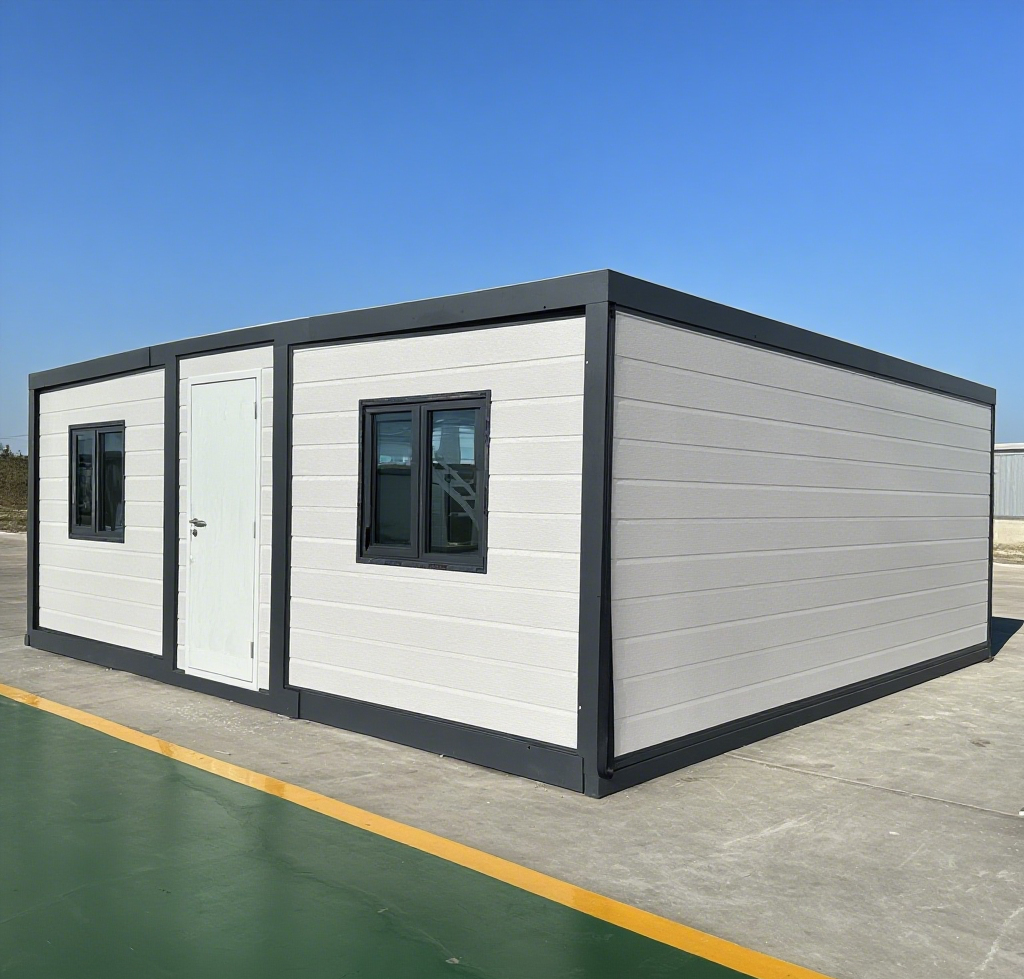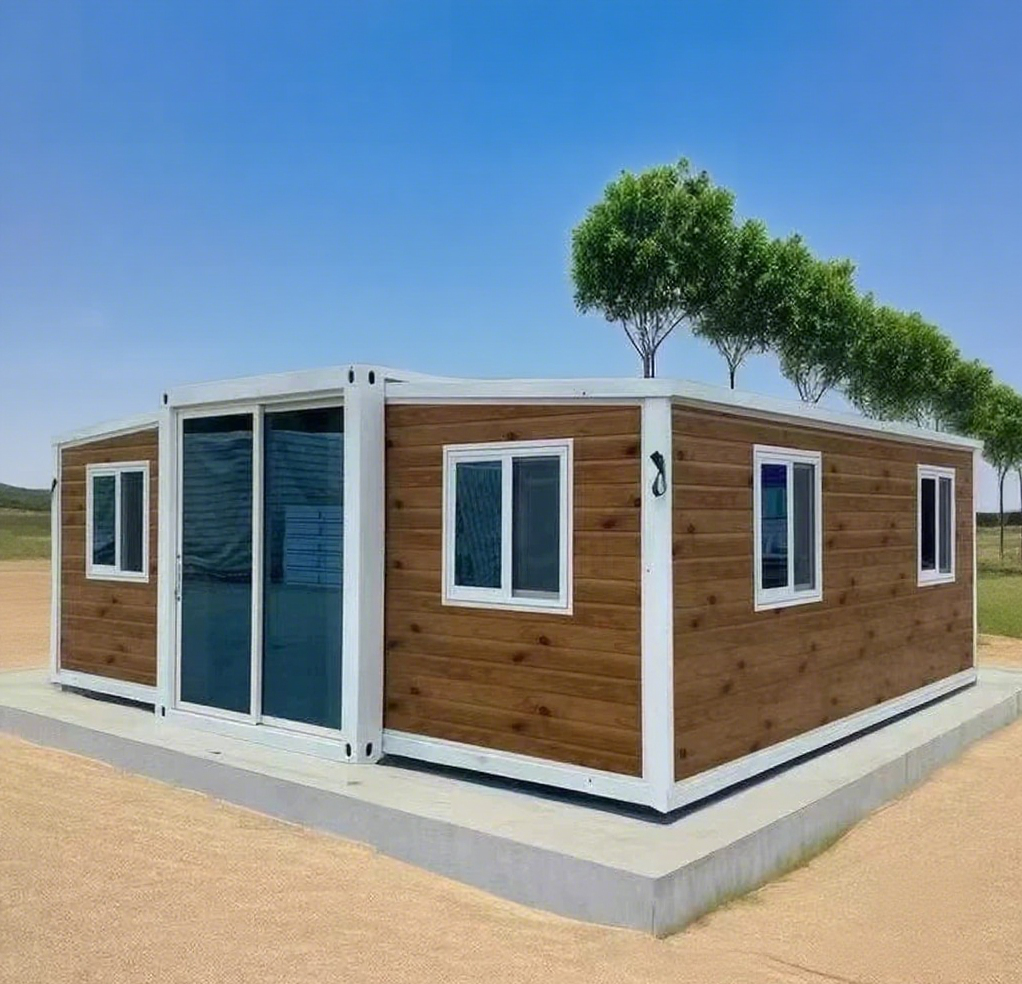The Rise of Expandable Container Homes in Remote Construction
Expandable Container Homes have emerged as a practical and sustainable housing solution for remote areas. These homes combine the flexibility of modular construction with the mobility of traditional shipping containers, making them ideal for temporary or long-term living in isolated locations. Designed to be transported easily and assembled quickly, they are transforming the way people think about housing in challenging environments. Whether for mining camps, disaster relief, or rural development, these innovative units offer a balance of comfort, efficiency, and adaptability.
Advantages of Expandable Container Homes
Cost Efficiency and Easy Transportation
Expandable Container Homes provide a cost-effective solution for remote projects. Traditional buildings require extensive foundation work and labor, which can be difficult and expensive in hard-to-reach areas. In contrast, these homes are prefabricated, allowing for quick assembly once delivered. Transportation is simple, as each unit is compact during shipping and expands on-site to provide full living space. This feature minimizes logistics costs and reduces construction time significantly.
Durability and Weather Resistance
Durability is a major reason why Expandable Container Homes are favored in remote regions. Built from robust steel structures, these homes can withstand extreme climates, from desert heat to heavy snowfall. Their design ensures water resistance and corrosion protection, which makes them suitable for long-term deployment. Unlike traditional wood or concrete structures that degrade faster under harsh conditions, container-based housing maintains stability and strength over years of use.
Quick Assembly and Deployment
For time-sensitive projects, Expandable Container Homes are invaluable. Most units can be assembled within hours, requiring minimal tools and manpower. This rapid deployment makes them ideal for emergency shelters, field hospitals, or construction site offices. Once expanded, they provide complete living facilities, including insulation, electricity, and plumbing. This efficiency allows companies or organizations to start operations almost immediately after installation.
Sustainability and Environmental Benefits
Reuse of Shipping Containers
Expandable Container Homes contribute to environmental sustainability by reusing shipping containers that would otherwise remain unused. Transforming these containers into livable spaces reduces waste and promotes resource efficiency. This repurposing aligns with global efforts to lower carbon footprints in the construction industry.
Energy Efficiency and Eco-Friendly Design
These homes can integrate energy-saving features such as solar panels, LED lighting, and advanced insulation. Their modular design supports sustainable living by minimizing energy consumption while maintaining comfort. Many designs also incorporate eco-friendly materials, further enhancing their environmental performance.
Reduced On-Site Impact
Expandable Container Homes minimize environmental disruption during installation. Because they require little to no foundation work, they preserve the natural terrain. This feature is particularly valuable in protected or fragile ecosystems, where traditional construction could cause irreversible damage.
Applications of Expandable Container Homes
Remote Worksites and Mining Camps
In remote worksites, housing must be both durable and portable. Expandable Container Homes provide comfortable living quarters for workers, ensuring safety and convenience in isolated environments. They can be easily relocated as projects move to different sites, offering long-term flexibility.
Disaster Relief and Humanitarian Aid
After natural disasters, speed is crucial. Expandable Container Homes can be rapidly deployed to serve as emergency shelters, clinics, or command centers. Their mobility and self-contained systems allow relief teams to operate efficiently even in areas with limited infrastructure.
Tourism and Off-Grid Living
Expandable Container Homes are increasingly used in eco-tourism and off-grid living projects. They offer unique, sustainable accommodations for travelers who want to experience nature without sacrificing comfort. Their compact yet functional design makes them ideal for mountain retreats, island lodges, or desert camps.

Design Flexibility and Customization
Modular Expansion
Expandable Container Homes offer great design flexibility. Units can be connected side by side or stacked vertically to create larger structures, such as dormitories, offices, or even multi-room residences. This modularity allows users to adapt layouts according to project needs or available space.
Interior Comfort and Aesthetic Options
Despite their industrial origin, Expandable Container Homes can be designed to provide modern interiors with stylish finishes. Layouts can include bedrooms, kitchens, bathrooms, and workspaces. With proper insulation and ventilation, the interior environment remains comfortable year-round, providing a home-like atmosphere even in remote settings.
Integration with Modern Technology
These homes can integrate smart systems such as automated lighting, temperature control, and remote monitoring. For companies managing multiple units across vast areas, digital management tools enhance safety, energy efficiency, and convenience.
Challenges and Considerations
Site Preparation and Utilities
While installation is simpler than traditional buildings, some preparation is still required. Flat terrain and access to basic utilities like water and electricity improve the setup process. Planning ahead ensures a smoother deployment and better long-term performance.
Regulatory Compliance
Expandable Container Homes must meet local building codes and safety standards. Regulations vary by region, so confirming compliance before shipment helps avoid delays. Working with experienced suppliers can simplify this process and ensure quality assurance.
Maintenance and Longevity
Although Expandable Container Homes are durable, regular maintenance ensures their longevity. Periodic inspections for rust, insulation quality, and structural integrity can prevent potential issues. Proper upkeep helps these homes remain functional and safe for decades.
The Future of Expandable Container Homes
Growing Global Demand
As urban areas become more congested, demand for flexible and sustainable housing solutions is rising. Expandable Container Homes provide an answer to the growing need for affordable and adaptable living spaces, especially in developing regions and temporary industrial zones.
Technological Advancements
Future designs are expected to include better insulation materials, enhanced automation, and improved energy efficiency. Smart integration will make these homes even more user-friendly, appealing to both individuals and organizations seeking portable housing solutions.
Sustainable Urban and Rural Integration
Expandable Container Homes may also play a role in sustainable urban planning. They can serve as temporary housing during construction projects or as permanent micro-homes within green communities. Their scalability and environmental benefits make them a promising choice for the future of modular architecture.
FAQ
What makes Expandable Container Homes suitable for remote locations
Expandable Container Homes are designed for quick transport and assembly, making them ideal for areas where traditional construction is difficult or costly. Their durability and integrated facilities support comfortable living even in isolated environments.
How long do Expandable Container Homes typically last
With proper maintenance, Expandable Container Homes can last over 25 years. Their steel frames resist corrosion and weather damage, ensuring long-term stability and safety.
Can Expandable Container Homes be customized
Yes, they can be fully customized to meet specific functional or aesthetic requirements. Options include layout adjustments, insulation upgrades, and interior design features tailored to user needs.
Are Expandable Container Homes environmentally friendly
Yes, they are considered eco-friendly due to their reuse of materials, energy-efficient systems, and minimal site impact during installation. These features support sustainable development goals while providing modern comfort.


